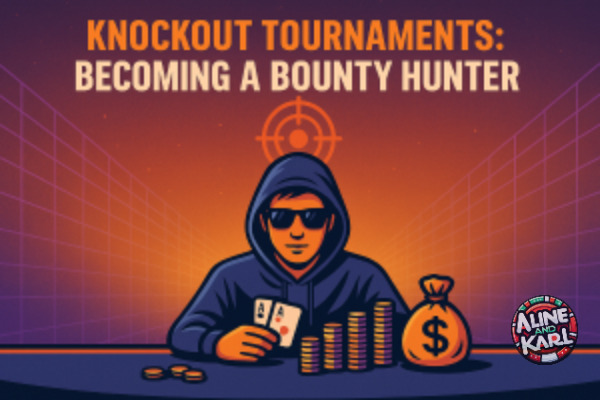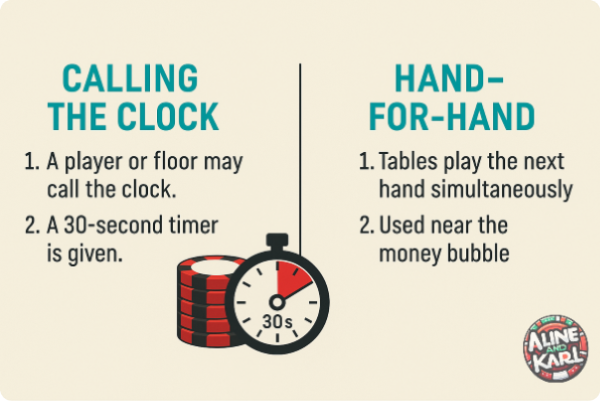Knockout Tournaments: Becoming a Bounty Hunter
Introduction – When Every Elimination Pays
Knockout (or Bounty) tournaments have become a staple in modern poker. Unlike standard tournaments where only the final prize pool matters, every player carries a bounty on their head that you collect by eliminating them. This creates two intertwined objectives:
- Survive and progress in the tournament.
- Take advantage of every chance to hunt bounties.
But how do you find the right balance between these two goals?
A Different Dynamic Than Standard Tournaments
In a normal tournament, decisions are primarily aimed at preserving or growing your stack to reach the money. In a Knockout, the value of each elimination changes everything:
- Eliminating a player = instant reward (often half of their bounty in progressive formats).
- Going deep in the tournament = access to the main prize pool.
👉 This pushes some players to widen their ranges, take more risks… and sometimes bust too early. The key? Knowing how to weigh the value of the bounty against the risk of busting out.
Five Tips for Playing Knockouts Better
1. Widen Your Calling Range Against Short Stacks
When a short stack (say, 5–10 blinds) shoves, their bounty can be worth as much—or even more—than their chip stack.
Example: you’re in the big blind with a medium stack, and a player with 6 BB shoves. In a regular tournament, you might fold a marginal hand. In a KO, the bounty makes the call much more attractive.
⚖️ But be careful: this doesn’t justify calling with just anything. Focus on hands that perform reasonably well in all-ins.
2. Don’t Overpay for a Bounty
The most common mistake among recreational players: chasing every bounty, even if it puts their tournament life at risk.
Yes, a bounty pays immediately… but the bulk of the money is still in the final prize pool. Busting early for a bounty means losing the chance to reach the big pay jumps.
👉 The smart move: always compare the risk of busting to the value of the bounty.
3. Understand Progressive Bounties (PKOs)
In Progressive Knockouts (PKOs), every time you eliminate a player you pocket half of their bounty, and the other half is added to your own head.
Result: the more players you eliminate, the more valuable your own bounty becomes.
This shifts the dynamics completely:
- The top bounty hunters become prime targets.
- Knocking them out can justify taking bigger risks.
4. Use Your Big Stack to Apply Pressure
Big stacks have a huge edge in Knockouts: they can cover multiple players and put them in tough spots.
A medium stack is often reluctant to risk it all against you when their bounty is on the line.
👉 Take advantage by applying pressure, especially against opponents who defend too loosely in their hunt for bounties.
5. Keep a Cool Head Amid the Adrenaline
Let’s be honest: it’s exciting to knock someone out and instantly pocket a reward. Many recreational players fall into the trap of “chasing everything that moves,” which often leads to busting too early.
A good bounty hunter knows how to manage the adrenaline and stay disciplined. Sometimes, the best decision is… to let a bounty go and protect your tournament life.
Different Perspectives
- The recreational player: “It’s fun, every elimination pays! I play way more hands than in a normal tournament.”
- The pro: “Knockouts bring more variance, but also more chances to exploit opponents’ mistakes.”
- The organizer: “This format attracts lots of recreational players. But it’s key to explain how bounties are awarded clearly to avoid disputes.”
Conclusion – A Game of Balance
Knockout tournaments make poker even more thrilling: every hand can carry an immediate reward. But to succeed, you must balance bounty hunting with tournament survival.
Being a good bounty hunter isn’t just about making reckless calls. It’s about knowing when to take the risk… and when to save your ammunition for the bigger paydays.
So, what kind of hunter are you: cautious or daring?

